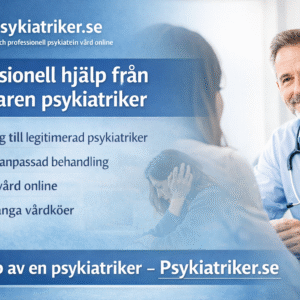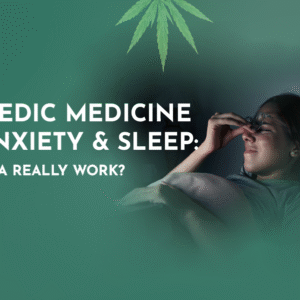Insomnia is one of the most misunderstood sleep disorders. Many people assume it’s simply “trouble falling asleep,” but in reality, it is a complex condition involving your mind, body, habits, and internal biological clock. Sleepless nights can slowly drain your energy, mood, focus, and overall well-being, making it difficult to enjoy life, work efficiently, or handle daily stress. This is why working with an insomnia doctor can help you break the cycle of sleeplessness using proven, natural, and long-term solutions.
This detailed guide explains how an insomnia specialist can identify the root causes of your sleep problems and guide you toward healthy, restorative sleep without relying on medication.
Understanding Insomnia Beyond the Basics
Insomnia affects more than your sleep—it impacts your brain, hormones, digestion, immunity, and emotional health. People often don’t realize how deeply interconnected sleep is with nearly every system in the body.
Types of Insomnia
Sleep-Onset Insomnia
Difficulty falling asleep, often due to stress, mind racing, caffeine, or screen exposure.
Sleep-Maintenance Insomnia
Waking up in the middle of the night and struggling to fall back asleep.
Early Morning Awakening
Waking up too early with an inability to return to sleep.
Chronic Insomnia
Sleep disturbances lasting longer than 3 months.
Short-Term or Acute Insomnia
Temporary sleeplessness triggered by life events, stress, or disruptions to your routine.
An insomnia doctor identifies the specific type you are experiencing to personalize your treatment plan.
Why Insomnia Happens: A Deep Dive into Triggers
Insomnia rarely has just one cause. Instead, it is usually influenced by a combination of biological, psychological, and lifestyle factors.
Common Causes of Insomnia
-
Stress and anxiety
-
Depression
-
Hormonal fluctuations
-
Thyroid irregularities
-
Chronic pain
-
Poor sleep habits
-
Excessive screen time
-
Jet lag or shift work
-
Late caffeine consumption
-
Irregular sleep schedule
-
Alcohol use
-
Environmental disturbances
-
Vitamin deficiencies
Because no two patients are exactly alike, an insomnia doctor analyzes these contributing factors to determine what is disrupting your sleep.
How an Insomnia Doctor Diagnoses Your Sleep Problems
A specialist doesn’t just ask how many hours you sleep—they study your behavioral patterns, emotional health, medical conditions, and sleep environment.
Sleep Evaluation Process
1. Sleep History Assessment
The doctor will ask detailed questions about:
-
Your nightly sleep routine
-
Daytime tiredness
-
Emotional stress
-
Eating and drinking habits
-
Physical health issues
-
Medication use
2. Sleep Diary Analysis
You may be asked to record:
-
Bedtime and wake time
-
Night awakenings
-
Sleep quality
-
Energy levels
-
Activities before sleep
3. Medical Examination
A physical exam identifies:
-
Thyroid dysfunction
-
Metabolic issues
-
Nutritional deficiencies
-
Pain-related sleep disruption
4. Mental Health Screening
Because insomnia is often linked with emotional imbalance, they check for:
-
Anxiety
-
Depression
-
Trauma
-
Overthinking patterns
5. Sleep Study (If Needed)
This helps diagnose:
-
Sleep apnea
-
Restless legs syndrome
-
Neurological disturbances
Not everyone needs a sleep test—your evaluation determines that.
Natural Treatments That an Insomnia Doctor Recommends
The best treatments focus on long-term recovery instead of temporary relief. A combination of behavioral, psychological, and lifestyle strategies offers the strongest results.
1. Cognitive Behavioral Therapy for Insomnia (CBT-I)
This is the most effective non-medication treatment and is considered the first-line therapy worldwide.
How CBT-I Works
-
Sleep Restriction: Limits time in bed to build sleep pressure.
-
Stimulus Control: Re-teaches your brain to associate bed with sleep, not stress.
-
Cognitive Restructuring: Replaces negative sleep thoughts with healthy ones.
-
Relaxation Training: Includes breathing exercises, mindfulness, and muscle relaxation.
-
Behavioral Adjustments: Eliminates habits that prevent proper sleep.
CBT-I offers long-lasting relief because it changes sleep behavior deeply and permanently.
2. Sleep Hygiene Optimization
Your daily habits decide the quality of your sleep. Improving routine and environment can dramatically enhance sleep quality.
Key Recommendations
-
Maintain consistent sleep and wake times
-
Reduce screen exposure 1–2 hours before bed
-
Avoid caffeine in the evening
-
Create a dark, cool, quiet bedroom
-
Avoid heavy meals late at night
-
Reserve your bed for sleep only
-
Establish a calming pre-bed ritual
-
Don’t nap during the day
Small changes here lead to major improvements in sleep.
3. Circadian Rhythm Regulation
Your body has an internal clock that must stay in sync with natural light.
Ways to Reset Circadian Rhythm
-
Morning sunlight exposure
-
Consistent bedtime routine
-
Dim lights in the evening
-
Limiting screen time after sunset
-
Avoiding irregular sleep patterns
-
Light physical activity in the daytime
When your rhythm is aligned, falling asleep becomes effortless.
4. Stress and Anxiety Management
Since the mind plays a major role in sleep, reducing mental tension is critical.
Techniques Often Recommended
-
Deep breathing exercises
-
Progressive muscle relaxation
-
Guided meditation
-
Journaling to release thoughts
-
Cognitive therapy to reduce overthinking
-
Visualization techniques
A calmer mind produces deeper sleep.
5. Lifestyle and Dietary Modifications
Your physical activities and eating habits affect your sleep hormones, energy levels, and nighttime relaxation.
Lifestyle Adjustments
-
Regular exercise
-
Evening stretching or yoga
-
Limited sugar intake
-
Avoiding alcohol before bed
-
Staying hydrated
-
Keeping a consistent daily routine
Sleep-Promoting Foods
-
Warm milk
-
Almonds and walnuts
-
Bananas
-
Herbal teas (chamomile, lavender)
-
Oats
-
Magnesium-rich foods
These support natural melatonin production.
6. Short-Term Medication (Only When Necessary)
A responsible insomnia doctor uses medications cautiously and never as a long-term solution.
Medication May Be Recommended If
-
Insomnia is severe
-
Stress levels are overwhelming
-
You cannot function during the day
-
There is temporary crisis or trauma
Even then, medications are used briefly and slowly tapered.
7. Treating Hidden Medical Conditions
Sleep disorders often arise from untreated health issues.
Common Underlying Conditions
-
Thyroid imbalance
-
PCOS or hormonal shifts
-
Vitamin D deficiency
-
Chronic pain or neural issues
-
Breathing disorders
-
High stress levels
Once the primary issue is treated, sleep becomes more natural.
How Long Does Treatment Take?
Most patients experience noticeable improvement within:
-
2 weeks: Better sleep consistency
-
4 weeks: Reduced awakenings and deeper sleep
-
6–8 weeks: Long-term stability in sleep patterns
Commitment and consistency are key.
Benefits of Seeing an Insomnia Doctor
Working with a specialist can dramatically improve every part of your life.
Physical Benefits
-
Stronger immunity
-
Balanced hormones
-
More energy
-
Improved heart health
-
Less inflammation
Mental and Emotional Benefits
-
Lower stress and anxiety
-
Better mood
-
Sharper focus
-
Improved memory
-
Higher productivity
Lifestyle Benefits
-
Consistent sleep patterns
-
Stronger work performance
-
More stable emotions
-
Improved relationships
-
Reduced caffeine dependence
Good sleep improves your entire life—not just your nights.
Signs You Should See an Insomnia Doctor Immediately
You should seek help if:
-
You struggle to fall asleep for over 3 weeks
-
You wake up multiple times nightly
-
You experience early morning awakenings
-
You feel tired despite 7–9 hours in bed
-
You rely on sleeping pills
-
You feel anxious about sleep
-
You can’t function due to daytime fatigue
-
Your performance at work is declining
-
Your mood is unstable
These symptoms indicate chronic or worsening insomnia that requires professional treatment.
Frequently Asked Questions
1. Can insomnia be cured permanently?
Yes. With proper evaluation and treatment, most people achieve long-term recovery.
2. Do I need medication for insomnia?
Not necessarily. Many effective treatments do not rely on medication.
3. What is the most effective treatment?
CBT-I is the most scientifically proven long-term solution.
4. How fast can I see improvement?
Many patients notice positive changes within 2–6 weeks.
5. Is insomnia dangerous?
Chronic insomnia can lead to heart issues, mental health problems, and reduced immunity, so early treatment is essential.
6. Do all insomnia patients need a sleep test?
No. Sleep studies are recommended only when another sleep disorder is suspected.




